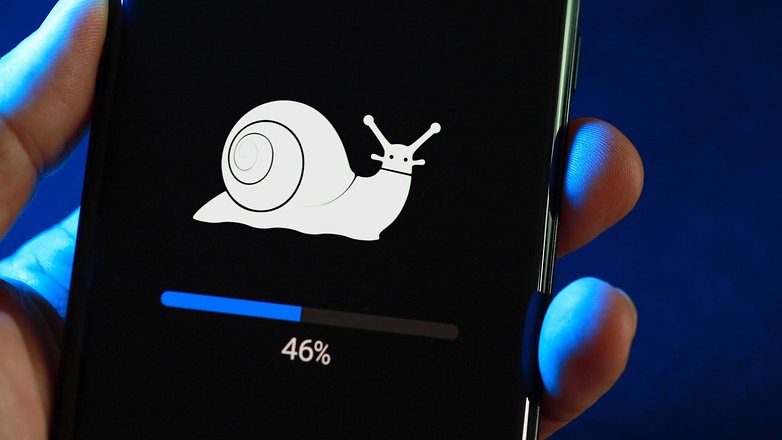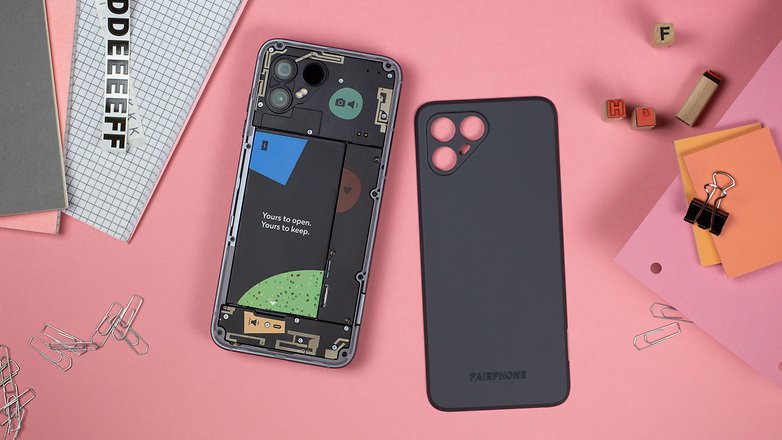Android fragmentation data that was released by Google this week, highlights the inability of manufacturers to build a better support system for updates for more than 10 years and the hypocrisy behind the discourse of sustainability. So the big loser this week is the "26.5%"!
On the winning side, Fairphone proves that with commitment and help from the developer community it is possible to get around long-standing problems such problems as Android fragmentation!
But before we talk about the winners and losers of the week, I share below some highlights from NextPit's coverage over the past few days:
Loser of the Week: The 26.5%
I started my career as a tech journalist in a time when Android OS updates were the reason for fights among family and friends. Something almost comparable to the 2021 presidential election. To make a clearer picture, my phone was running Android 2.3.3 Gingerbread when this was the most popular version of the OS.
For what it's worth, this was a bad example, as Gingerbread stayed on top for years. And perhaps it is because Google could no longer bear to go through the monthly humiliation of seeing Android 2.3.3 among the versions with a large share in OS distribution, in 2018, the system fragmentation list started to be released only once a year.
(Incidentally, I blame the popularity of the Samsung Galaxy Y for keeping Gingerbread on the list for so long.)

This week, another list of shame was published by Google. In it, Android 10, announced in 2019, appears with 26.5% of the system distribution, that is, the largest slice of the cake. In second place, we have Android 11 (2020) and, in third, Android 9 (2018). At this point, it seems that Google chooses to release Android fragmentation information at this time of year just to put manufacturers in check.
The list could very well be released before the new version of the OS was announced, given that only Pixel smartphones were running Android 12 at the time the data was collected from the Google Play Store. And let's face it, despite Google going out of its way to say otherwise, not many Pixel devices are out there!
Now, jokes aside, this is a serious problem, because, with some exceptions, few manufacturers continue sending security patches after three years from the launch of their devices. Soon, many phones running Android 9 (18.2%) will be susceptible to security flaws next year.
RELATED
And as much as many people have criticized the data on this official list in recent days, given a choice, I believe no one would choose to stay with a phone running software that is vulnerable to attacks.
What I do not want for me, I do not wish for others, because the information stored on my phone is extremely important. Smartphone manufacturers should offer updates faster and for longer, after all, they are the first to raise the flag of sustainability when they launch a new smartphone.
Well, let me tell you something: Supporting people to stay with their phones longer is also a direct action to decrease the negative impact of technology on the planet!
Winner of the week: Fairphone and the developer community
...Thankfully, Fairphone put it all in perspective by announcing the Android 10 beta testing program for the Fairphone 2, released in 2015. With the help from the developer community - yes, exclude Qualcomm from this list - the company will ship the fourth software update for the Fairphone 2, announced six years ago.
So if with extremely limited resources and support, Fairphone can keep software updates for a modular phone for so long, why can't manufacturers like Motorola offer the same if not more?

In 2021, Google announced that the Google Pixel 6 series will have 5 years of security updates. Samsung has committed to up to 4 years for models in series like Galaxy A, Galaxy S and Galaxy Z, as well as being one of the first to deliver the update to Android 12. However, given the size of these companies and the relevance they have in the market, they could offer to us, their customers, something better, right?
And that's all for today, folks! I wish you a great start of the week and a good Cyber Monday! But before I say goodbye, here's the question: What did you think of this week's picks? Share your opinion in the comments of this article.
Read More Open link https://ift.tt/3cUqz5C

0 Response to "Winners and losers: Fairphone and the fragmentation of Android"
Posting Komentar